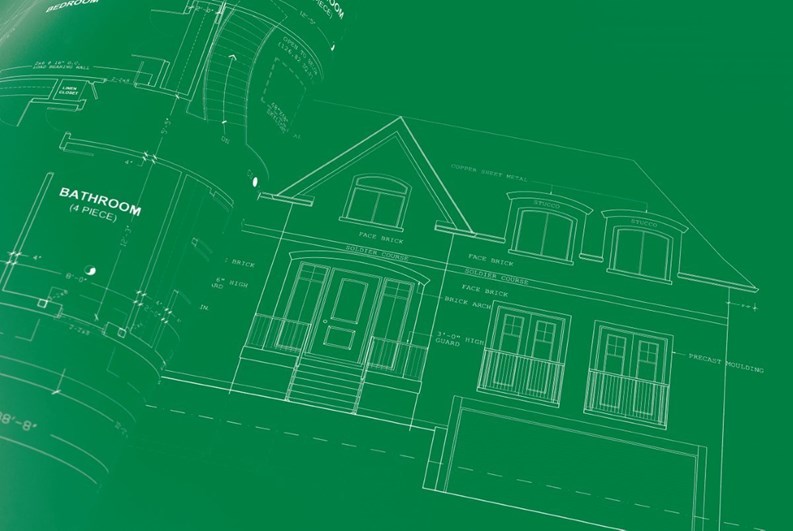"Where's my concierge?" "What's that dog doing here?" "Why hasn't that valet shown up with my car yet?...it's been almost 10 minutes." Developers who built some of the region's most expensive condominium properties in recent years are starting to get some feisty feedback from their well-heeled buyers—a discriminating bunch who are not afraid to complain, or litigate, over what they see as unmet promises or shortcuts in construction.If you're living in a three-decker, this may all sound like whining. However, as Attorney Richard Brooks of the law firm Marcus, Errico, Emmer & Brooks, P.C. in Braintree, Massachusetts, points out, "It's what they really care about...It's their home, and it's important to them."
Whether it's petty whining or a legitimate beef, the fact is that a number of high-end buildings are currently involved in court actions, and it's a rather recent phenomenon, according to industry analysts.
Since 2000, downtown Boston has seen a building boom of 9,000 condominium units—and most of them boast super-luxurious amenities with corresponding price tags. Some are conversions of older buildings, but many are sparkling new towers. They have attracted well-to-do professionals, retired executives, business owners and a smattering of celebrities and sports figures who can afford the $1 million-plus prices.
Not Used to Close Quarters
Living in close quarters with other residents—wealthy or not—may be a new experience for these new owners. Many of these buyers came from suburban towns with loads of landscaping buffering them from neighbors, and they are not accustomed to the compromises involved in community living. And having paid millions for their new condos, all the new residents in these upscale projects expect nothing less than perfection from the developer.
And if their demands are not met, they have the wherewithal to get the best legal representation.
Recent news reports cited several cases currently on their way to the courtroom.
In the heart of downtown Boston, the 360 units comprising the new Residences at the Ritz-Carlton Towers are located on Avery Street off Washington Street. The two-tower complex was built in 2001, with one-bedrooms starting at $700,000 and prices soaring to more than $4 million for a three-bedroom unit.
Problems have loomed and residents have taken action against the project's developer, Millennium Partners. Unit owners of one tower allege-—in a recently-filed suit—that valets are slow delivering their cars because the developer located the valet parking at the bottom of the underground garage.
After North Tower residents assumed control of their building from Millennium in 2005, they hired experts including accountants to check financial documentation and engineers to assess potential construction problems. South Tower residents then did the same after taking control of their building.
Refunds Demanded
Allegations include a lack of waterproofing in the garage and insufficient insulation of individual units. Residents are demanding a refund from the developer to cover miscellaneous costs for windows, vent fans and other equipment—totaling hundreds of thousands of dollars.
Published reports also cite Burroughs Wharf on the Boston waterfront, where condo owners are suing their neighbor over his Labrador- pit bull mix. The dog's owner claims the dog is licensed with Therapy Dogs International, with a doctor's note stating that this is an "emotional support animal" that helps its owner cope with depression. Nonetheless, condo association members are worried about the "pit bull" reputation and neighbors are afraid of the dog, which has not bitten anyone.
Condo trustees allege that the dog's owner failed to report that the dog is licensed as a pit bull under a city ordinance that also requires owners to post warnings about the dog on the premises. With no compromise in sight, lawyers have been hired and the issue is making its way through court.
And these litigants seem determined to hold out—perhaps because they can afford to—for a legal decision that meets with their satisfaction.
Battle over Carpet
As an example, another news report from Boston's Beacon Hill described a five-year legal battle that started when one couple installed $12,000 worth of carpet in a common area and were subsequently sued by the condo trustees. Although a judge in 2003 ruled that the couple did not have authority to install the rug, the battle did not end. The issue has blossomed into five court suits with enough paperwork to file up a file drawer.
At a new, very upscale condo community in greater Boston, a resident threatened to take action against the developer because concierge service had been promised as one of the perks of unit ownership, and several months after moving in, there was not yet a concierge in sight, or on site.
Attorney Brooks points out that on initial observation, these complaints may seem trivial with neighbors acting out the way spoiled children would. "[These suits] may sound petty to some guy who's just been laid off...but these condo owners bought their right [to be picky]" when they purchased such an expensive property.
Even if you spent that much money on your work or office space, he adds, "You wouldn't care about it the same way. When it's your home, you'll fight..." for even the little things.
This opinion is shared by attorney Stephen Marcus, of Marcus, Errico, Emmer & Brooks, P.C., who states, "There may be a sense of entitlement in higher-end unit owners. The issue may be that these owners are more used to getting what they want. When they can't do exactly what they want anymore, because it's a community setting, it may lead to litigation."
The courts will ultimately decide if developers are being held accountable to higher standards in these upscale projects, or if they're just being unreasonably harassed.
Neighbor-to-Neighbor Disputes
Litigation can get much more tricky, and unpleasant, in the neighbor-to-neighbor disputes, which can't be fixed as easily as a leaky window. These disputes may call for a different approach.
In general, Marcus believes that "boards and associations have to become a little more sensitive to the needs of disabilities. Even if your condo docs say you can't make modifications [to particular areas]...the laws allow for certain physical accommodations for people with disabilities. You can't violate MCAD [Massachusetts Commission Against Discrimination]."
In the case of the afore-mentioned service dog at Burroughs Wharf, while the particulars of the case are unknown, at first glance it would appear that the dog-owner has every right to keep his pet for medical reasons. The laws are very clear about accommodating service animals—as long as they don't pose a threat or hazard to others.
People may choose to sue anyway, even where a disability could be involved, because everything under MCAD is done on a case-by-case basis. Marcus notes that "litigants also might claim that MCAD made a mistake [with a decision] and take the case to superior court."





Leave a Comment